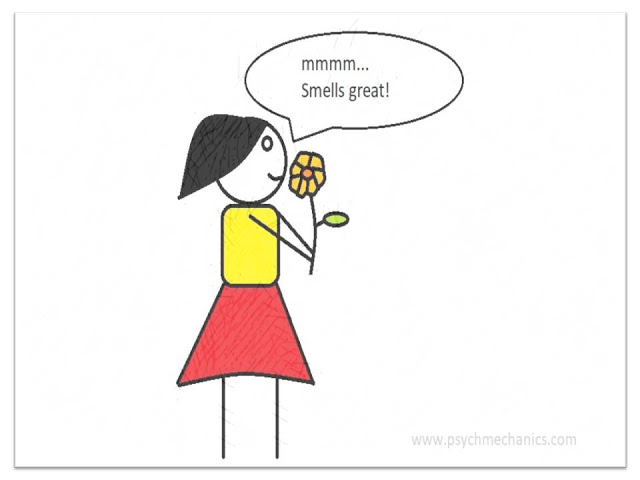The article will explore whether women have a strong sense of smell and taste compared to men.
In previous articles How men and women perceive the world differently and Communication differences between genders, we looked at the gender differences in humans in visual and auditory perceptions.
In this article, we take up the senses of taste and smell and see whether or not there’s a difference between men and women in how they taste and smell things.
First, should we expect a difference?
If our male ancestors hunted and our female ancestors gathered plant-based foods, who could benefit from having a strong sense of smell and taste?
Of course, it’s the females. Being a successful hunter does not require being good at smelling and tasting but being a successful gatherer of plant-based foods does. If you are to gather fruits and seeds, you need to be good at discriminating between poisonous or rotten foods from the nonpoisonous or fresh ones.
In general, naturally occurring foods that taste and smell bad are bad for us so it’s advantageous to be good at identifying and avoiding them. Being able to categorize and recall various odours and tastes is also critical.
Evolutionary theory predicts that women should have a higher sensitivity to various odours and tastes because, over evolutionary time, women more than men had to engage in gathering-related behaviours.
Tasters and supertasters
About a quarter of the human population has superior tasting abilities than the rest. These people have been dubbed ‘supertasters’. They taste saltiness, bitterness, and sweetness more acutely than others.
Studies have shown that women are more likely to be supertasters.1 Women are also better at determining the differences in tastes- and even better at describing how things taste. In fact, women have more taste buds than men.2
This superior tasting ability in women is present since childhood because even primary and secondary school girls are better than boys of the same age at recognizing tastes.
This was a conclusion made by a Danish study of 8900 children which also found that boys needed food to be at least 10% more sour or 20% sweeter to achieve the same taste detection levels as the girls.3
No wonder it’s usually the female members of a family, or a group of friends dining together, who first detect that there’s something wrong with the way the food tastes.
They’re also usually the first to expressively comment on how good the food tastes and more interested in talking about what different kinds of flavours have been used.
If really bad-smelling food is served, men can take it with a pinch of salt (literally) but women may choose to avoid eating it altogether even if they’re feeling hungry.
Women have a strong sense of smell
It’s the same story with the sense of smell. Women generally have a higher sensitivity to various odours and are better than men at discriminating and categorizing odours .4

Reproductive-age women have a higher level of smell sensitivity, meaning their ability to smell a variety of odorants vastly improves with repeated exposures than any other group.5
This ability might have enabled ancestral women to detect and avoid contaminated food and toxins, thereby protecting their fetus (during pregnancy) and children (post-pregnancy).
It’s not just about the food
A better sense of smell also helps women to bond with others. Mothers have been known to identify their baby’s smell from a large group. Little girls (4-5 years of age) are better at identifying correctly their playmates from their body odour and also outperform boys in their ability to identify the odour of a brother or a sister.
When it comes to attraction, heterosexual women give ‘body odour’ more importance than ‘looks’.6 Male body odour tells a woman whether or not a particular man’s immune system is compatible with hers so as to increase the probability that her offspring may have a stronger immune system.
Of course, women are not conscious of this underlying biological reason for why they care so much about body odour in men. They just like some men’s smell over the others.
Companies have tried to exploit this phenomenon to sell all kinds of perfumes to men. After all, you never see an ad showing men going crazy over a woman who’s just applied the latest Giorgio Armani cologne.
References
- Bartoshuk, L. M., Duffy, V. B., Reed, D., & Williams, A. (1996). Supertasting, earaches and head injury: genetics and pathology alter our taste worlds. Neuroscience & Biobehavioral Reviews, 20(1), 79-87.
- Bartoshuk, L. M., Duffy, V. B., & Miller, I. J. (1994). PTC/PROP tasting: anatomy, psychophysics, and sex effects. Physiology & behavior, 56(6), 1165-1171.
- University of Copenhagen. (2008, December 18). Girls Have Superior Sense Of Taste To Boys. ScienceDaily. Retrieved July 15, 2017 from www.sciencedaily.com/releases/2008/12/081216104035.htm
- Brand, G., & Millot, J. L. (2001). Sex differences in human olfaction: between evidence and enigma. The Quarterly Journal of Experimental Psychology: Section B, 54(3), 259-270.
- Dalton, P., Doolittle, N., & Breslin, P. A. (2002). Gender-specific induction of enhanced sensitivity to odors. Nature neuroscience, 5(3), 199-200.
- Herz, R. S., & Inzlicht, M. (2002). Sex differences in response to physical and social factors involved in human mate selection: The importance of smell for women. Evolution and Human Behavior, 23(5), 359-364.

